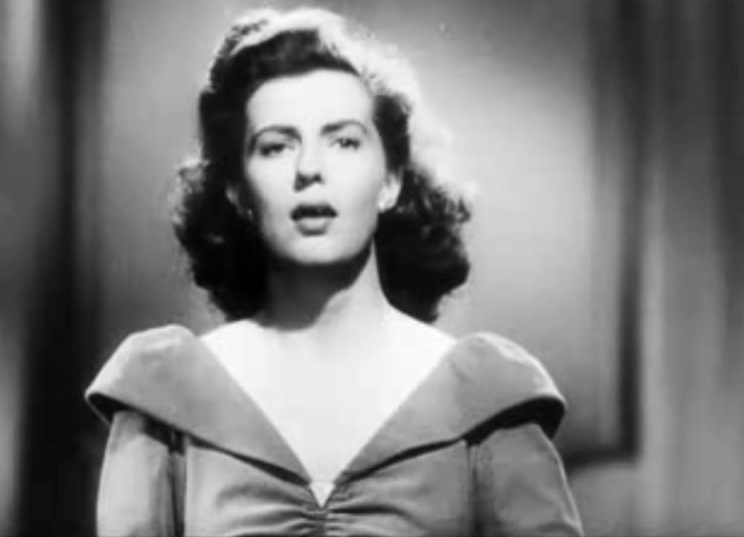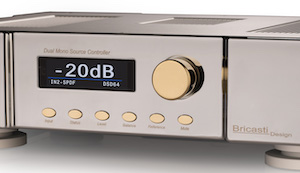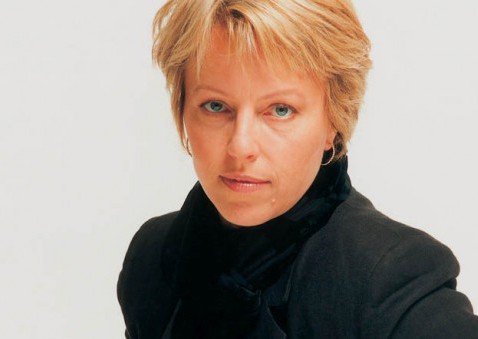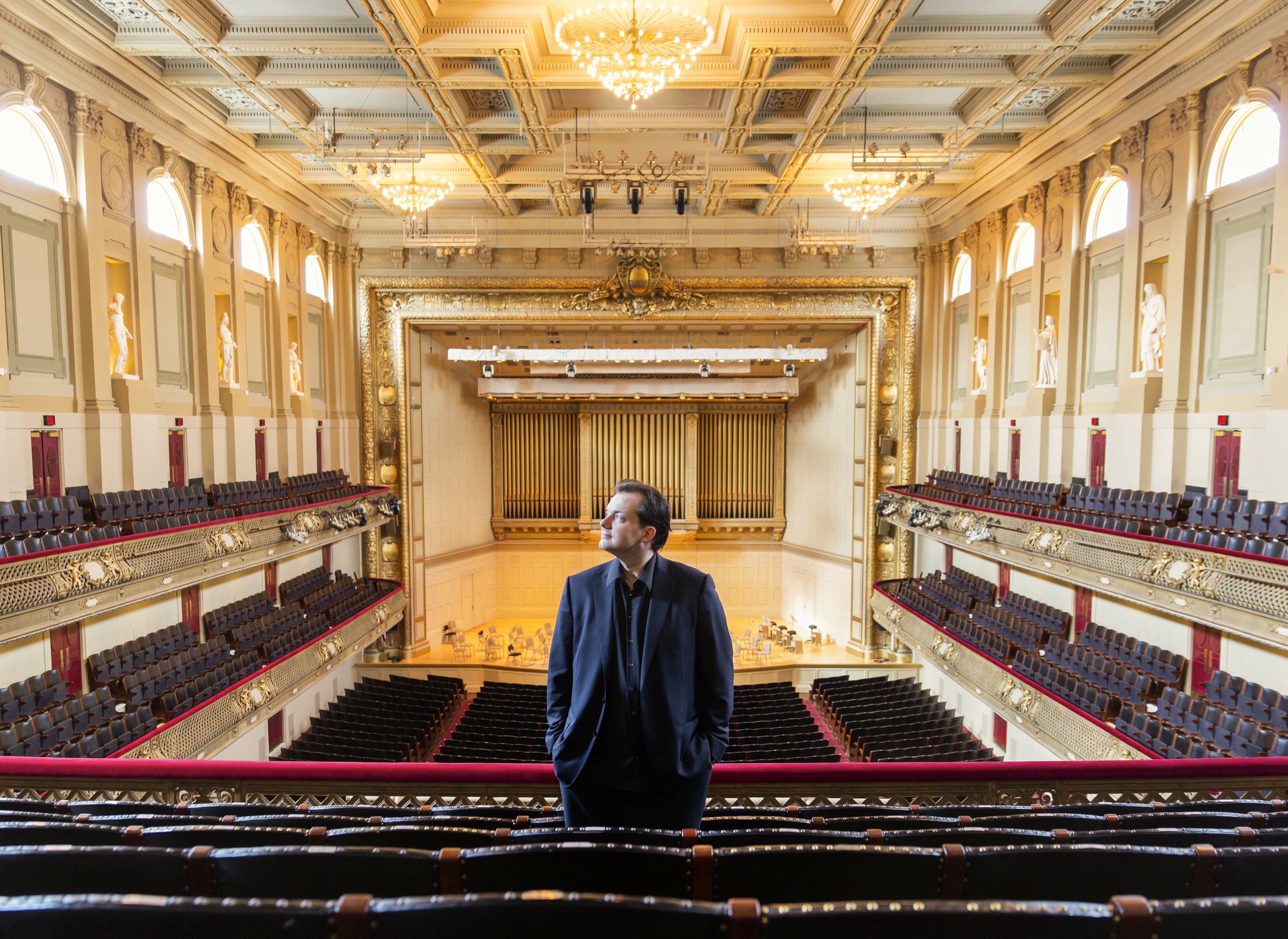
Month: January 2021
JBL L100 Classic Loudspeaker
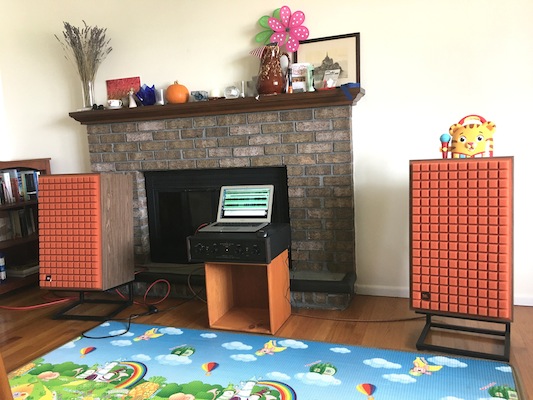 Photo by John Marks
Photo by John Marks
JBL’s L100 Classic loudspeaker has a United States MSRP of $4000/pr. (stands not included).
However, if you want to make them sound like the proverbial “a million bucks,” here’s how to do it:
(1) Connect a pair of JBL L100 Classics to your amplifier.
(2) Subscribe to the Qobuz streaming service (they have a risk-free 30-day trial offer). Feed that signal to your Digital to Analog Converter.
(3) Dial up the 24-bit hi-res version of Joel Fredericksen & Ensemble Phoenix’s astonishing feat of creativity and musicianship, the Nick Drake tribute album Requiem for a Pink Moon.
Wow. The first 60 seconds of Track 1 should convince you. The L100s sound like a million bucks. I unhesitatingly recommend audition of the L100 Classic to anyone shopping for loudspeakers in their price tier.
However, my take on the reality (of all such situations) is that every loudspeaker ever designed incorporates tradeoffs. To get this, you have to give up that. Even if the only thing you are giving up on is affordabilty.
The L100 Classic is remarkably affordable, considering its dynamics and its bass performance. If I were still writing for Stereophile magazine, I’d put it in for the coveted “$$$” high-value indication in the Recommended Components List.
But when you design a loudspeaker that has perhaps 80% of the bass and dynamics of loudspeakers costing four or five times as much (or even more; I am talking about loudspeakers in the $15,000 to $28,000 range), but at 20% of the cost of the more expensive loudspeakers, there are, of course, going to be tradeoffs and compromises. That’s my take on the reality.
More on Pink Moon, more on the social and cultural context of and the impact of the original L100, and more comments on the sound of the new one, after the jump. Continue Reading →
Graham Audio Chartwell LS6 Loudspeaker
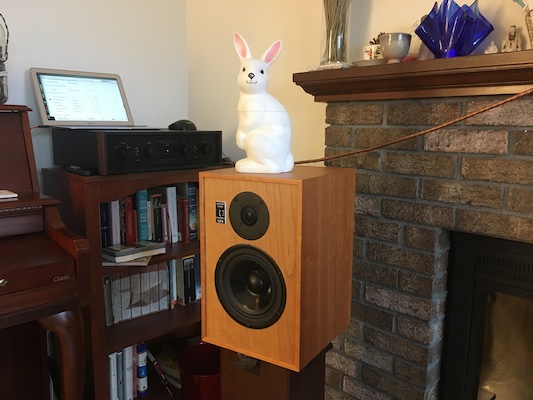 Photo by John Marks
Photo by John Marks
[Note: The bunny atop the LS6 is a gesture in memory of Art Dudley. I am certain that Art would have loved this loudspeaker. I think that it is one measure of Art’s impact upon the high-end audio community that most people who read this review will immediately grasp much of what this loudspeaker is all about, just from reading only that.]
Graham Audio’s Chartwell LS6 loudspeaker is a labor-of-love audio product that is seriously competent in terms of engineering, but also characterful in terms of its presentation of music—especially the human voice. Therein lies the complexity.
The Chartwell LS6 evokes complex reactions in part because of its UK BBC “thin-wall cabinet” design heritage. However, heritage is not destiny. In any event, the LS6 is more of a “clean-sheet-of-paper” design than a slavish copy of a loudspeaker that is nearly 50 years old.
The primary engineering difference is that the LS6 is a ported-enclosure design, whereas the iconic BBC LS3/5A is a sealed-box design. Therefore the LS6 is, to me, more of an updating of the idea of a “Classic BBC-Designed Studio Monitor” than it is an updating of any particular loudspeaker.
The Chartwell LS6 deserves to be judged in comparison to its older BBC-derived relatives—but also, by today’s standards as well. Either way, it is a winner. In addition, it is solid value for money.
A philosophical diversion or two follows, after the jump. Continue Reading →
Caitlin Flanagan on “A Charlie Brown Christmas”

I have always been impressed by the journalist Caitlin Flanagan, but her recent memoir and “think piece” on the remarkable staying power of a TV special from 1965 featuring the cast of the comic strip Peanuts is one of the best such things I have ever read. Just like the Charlie Brown Christmas special, it’s an instant classic.
After the jump, I quote generously from the intro. But I leave off quoting before I get to the best part, which is her explanation of how that instantly-accessible jazz music ended up in the mix. So, please click through to read the whole article on the Atlantic website.
But before that, I want to note that Ms. Flanagan has been battling Stage IV cancer with preternatural courage. You may wish to read I Thought Stage IV Cancer was Bad Enough… (then came a pandemic, during the Presidency of Donald Trump).
Clickez ici, SVP! Continue Reading →
Noam Sivan: Improvisations upon the Goldberg Variations, BWV 988
I am indebted to David P. Goldman‘s wonderful Tablet magazine article on the place of classical music in Israeli society for introducing me to the young pianist Noam Sivan, who is recovering the lost art of classical-piano improvisation.
Born in 1978, Sivan has taught at the Curtis Institute and the Juilliard School. Currently he is Professor of Piano Improvisation at the State University of Music and Performing Arts Stuttgart, where he has opened a Master’s-Degree program in classical-piano improvisation.
His album Chopin & Improvisations is downloadable from his website.
# # #
